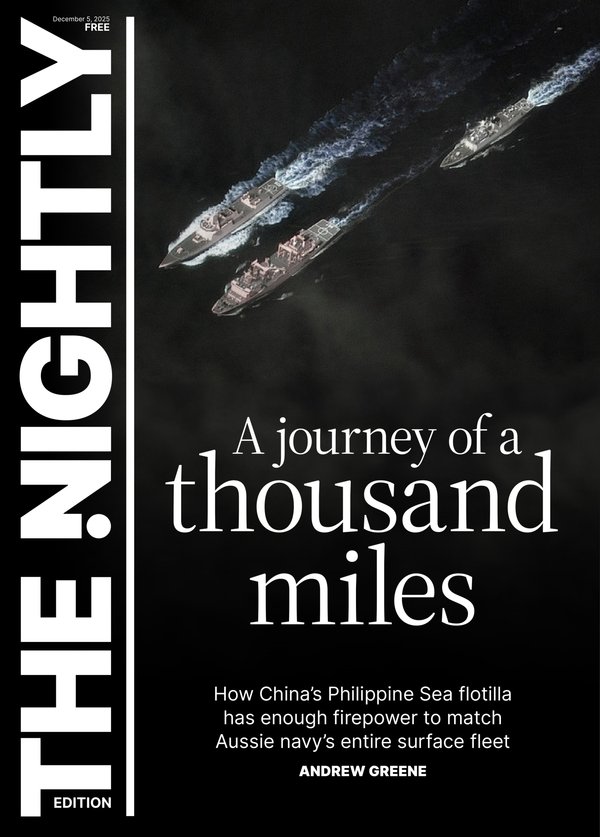Deadly blue-ringed octopus found at popular beach in Sydney’s Brighton Le-Sands
A shocked swimmer has found one of the ocean’s most deadly creatures at a popular Sydney beach.
Footage posted online shows a blue-ringed octopus in a small fishing net after reportedly being found at Brighton Le-Sands, in the city’s south, on October 1.
While not initially looking like the deadly creature, the octopus flares its blue rings in a sign of aggression after sprayed with water.
Sign up to The Nightly's newsletters.
Get the first look at the digital newspaper, curated daily stories and breaking headlines delivered to your inbox.
By continuing you agree to our Terms and Privacy Policy.WATCH THE VIDEO ABOVE
Despite being only centimetres long, the blue-ringed octopus is heralded as one of the most potentially deadly animals in the ocean due to its venom that is about 1000 times stronger than cyanide.
A single bite from the species leads to nausea, respiratory arrest, heart failure, severe paralysis, blindness and death without urgent treatment.
With such a deadly reputation, the video struck fear into a number of social media users after being posted to TikTok.
“Crazy how so many people don’t actually know that this is one of the most, if not the most dangerously poisonous/venomous creatures to ever exist,” one user wrote.
A second said they were shocked to see the octopus had been caught at the popular beach, adding that “these things are deadly and they are not commonly found in Brighton Le Sands”.
However, others noted that the species is mostly passive and only bites or shows its fluorescent blue rings when it feels threatened.
“Leave the octopus alone they won’t hurt you unless you try to hurt it,” a third wrote. “Its home is the ocean, nothing crazy about that!”
According to Australian Geographic, the “odds of being stung by a blue-ringed octopus are luckily relatively low, mainly because the animal is rarely encountered in the first place. Doing their best to avoid confrontation at all costs”.
“When humans have been stung, it’s because they have either provoked or accidently stumbled across one of these tiny marine dwellers.”
With no antivenom to treat a bite however, those who are unfortunate enough to have been struck by the species can only survive by receiving medical attention and, if needed, be placed under artificial respiration until the venom’s effects wear off.
7NEWS.com.au have approached Bayside Council for comment.
Originally published on 7NEWS
